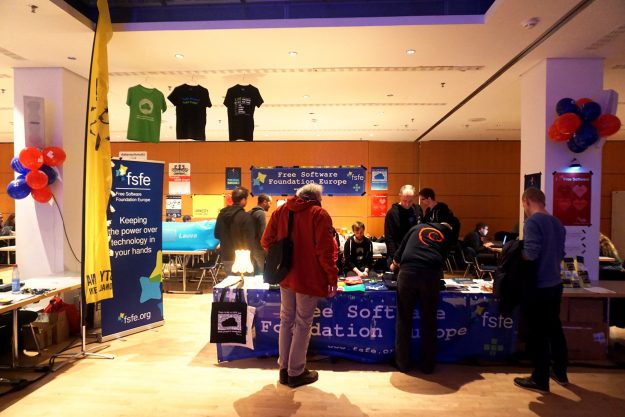The PHP Foundation is an effort by 10 key PHP vendors to assure adequate funding to keep the popular scripting language viable.
Posts published in “Business”
The proposed legislation, which would regulate "gatekeeper" platforms in the EU, doesn't go far enough, according to the FSFE.
The founder of the privacy respecting version of Android, /e/, says the time is right for phone makers to adopt an operating system that isn't dependent on a single company.
It appears that the once cancelled SCO Show has again been rebooted after a federal judge okays an appeal.

SCO. There’s a name I’ll bet you thought you’d never hear again. Guess what? It’s back.
Wasn’t there a Bond film called “Live to Die Another Day.” Even if there wasn’t, that applies here.
Christine Hall has been a journalist since 1971. In 2001, she began writing a weekly consumer computer column and started covering Linux and FOSS in 2002 after making the switch to GNU/Linux. Follow her on Twitter: @BrideOfLinux
Actually, FOSS Force had nothing whatsoever to do with SUSE pulling the video, but the headline piqued your interest, didn’t it?

The Every-Other-Monday Column
Sometimes the best laid plans…
A week ago Sunday I wrote and scheduled an article to be published last Tuesday. In it, I poked fun a little fun at SUSE, while giving a thumbs up to what I thought was a very well executed — and funny — parody of “Game of Thrones.” It was also very clever, insofar as it managed to paint rival Red Hat in a less-than-open light, without ever mentioning the company by name. In the parody, the not-so-open guys all wore red hats.
Christine Hall has been a journalist since 1971. In 2001, she began writing a weekly consumer computer column and started covering Linux and FOSS in 2002 after making the switch to GNU/Linux. Follow her on Twitter: @BrideOfLinux
Watching this video from SUSE, you might be excused for thinking you’re watching a trailer for a new Netflix original which looks suspiciously like “Game of Thrones.” To paraphrase an old Dodge commercial: “You can tell they’re bad guys because they all wear Red Hats.”

Okay, it’s a funny little five minute parody of House of Thrones. But it looks to me as if SUSE has thrown down the gauntlet and is challenging Red Hat…or a bunch of medieval guys wearing red hats…to who knows what. Are the gals and guys in Germany growing a little tired of being the perennial second fiddle — or now third fiddle now that Ubuntu is in server rooms everywhere, especially in Amazon’s cloud.
Christine Hall has been a journalist since 1971. In 2001, she began writing a weekly consumer computer column and started covering Linux and FOSS in 2002 after making the switch to GNU/Linux. Follow her on Twitter: @BrideOfLinux
Hook one of these BLE babies up with facial recognition technology and we’ll be living smack dab in the middle of a Philip K. Dick novel.

Roblimo’s Hideaway
Do you spend a lot of time thinking about Bluetooth Low Energy (BLE) beacons? Unless you run a retail store, probably not. But if you do run a store (or stores) along with an e-commerce operation, BLE is a hot new thing you are either using already or thinking about using before long.
Robin “Roblimo” Miller is a freelance writer and former editor-in-chief at Open Source Technology Group, the company that owned SourceForge, freshmeat, Linux.com, NewsForge, ThinkGeek and Slashdot, and until recently served as a video editor at Slashdot. Now he’s mostly retired, but still works part-time as an editorial consultant for Grid Dynamics, and (obviously) writes for FOSS Force.
Just because open source is winning in the enterprise, that doesn’t mean that the proprietary folks have given up their old tricks.

Roblimo’s Hideaway
Do you think the operating system and software on your little laptop is important? It is to you, but when it comes to big business, what’s going on in the cloud is what counts, even though it’s invisible to most people.
Robin “Roblimo” Miller is a freelance writer and former editor-in-chief at Open Source Technology Group, the company that owned SourceForge, freshmeat, Linux.com, NewsForge, ThinkGeek and Slashdot, and until recently served as a video editor at Slashdot. Now he’s mostly retired, but still works part-time as an editorial consultant for Grid Dynamics, and (obviously) writes for FOSS Force.










